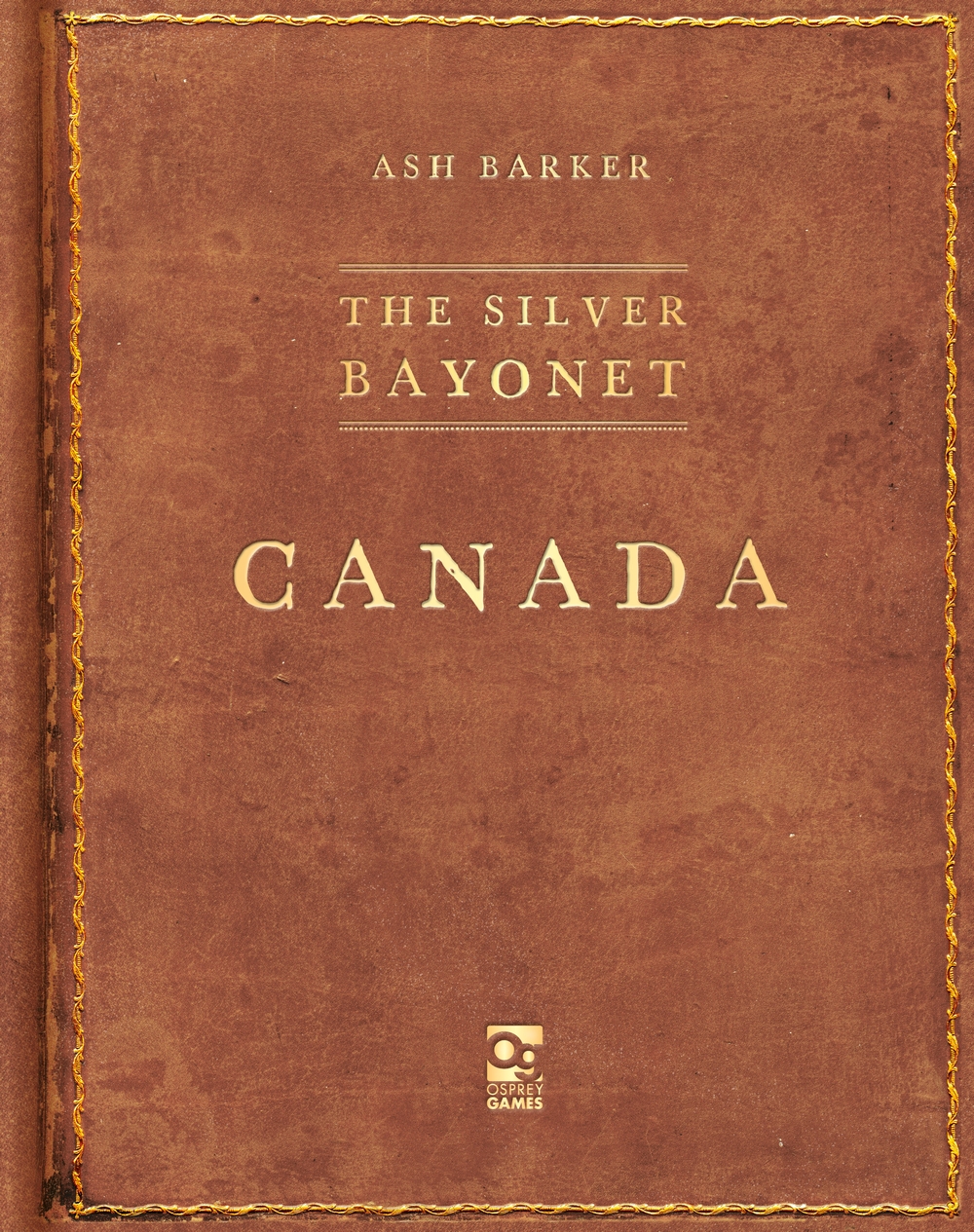
The newest The Silver Bayonet supplement, Canada, is out next month! Hear from newcomer author to the series, Ash Barker, about some of his inspirations and what you can expect from this fresh setting...
"I was born in Toronto, a city built atop one of Canada’s Great Lakes. These massive fresh bodies of water are almost large enough to be considered inland seas. For thousands of years they fed early humans and the wildlife that made their home here. While early humanoid life was spreading from Africa across the world and shaping the lands of Europe and Asia, the vast expanses of North America sat mostly empty and wild.
The early pioneers of humanity that crossed over from Asia during the Ice Age found an incomprehensibly vast expanse of wilderness. For tens of thousands of years they built lives and communities within these lands until European explorers arrived here only a few short centuries ago. They too were humbled by its enormity and utterly unprepared for the scope and power of the place. Different from those first peoples, European colonists brought with them some things that this land, in turn, was unprepared for. Industry along with disease and politics had grown to be powerful forces in Europe and by the time of our story, were its primary exports.
This book is quite personal to me. My formative experiences growing up as a Canadian descendant of British, Irish, and French colonists has been in the aftermath of that tectonic cultural and environmental collision. Modern North America is a product of an enormous portion of largely untouched planet Earth, inhabited by humans mostly in harmony with it, crashed into by a different branch of humankind absolutely convinced of its manifest destiny to master every inch of creation.
The Silver Bayonet is set in the period where that conflict is raging. The Harvestmen and their desire to stoke war and strife by which to siphon negative energy further draws us into disagreement with the supernatural and mythological. This period of disagreement with both natural and unnatural forces is a prime setting to explore these stories.
A great many of the creatures encountered in this book come from the traditions and mythologies of First Nation Peoples from across North America and I have done my best to depict these as accurately and respectfully as possible while writing a fiction based on this period.
The lesson of the Harvestmen is that no matter where we go, we bring our evils with us and in our ignorance, come into conflict with things we do not understand.
**********************************
The North and the Passage
At the end of the American Revolutionary War, the North American continent was settling into a new set of borders and governments amidst the backdrop of westward expansion. For the European colonists, the continental landmass of North America was still largely unexplored and uncharted to the north and west.
The sudden revolutionary formation of the United States had also caused the creation of two distinct British Provinces above it, these being Upper and Lower Canada. These two regions were unique from one another both politically and socially as they incorporated people of a variety of European heritages and indigenous nations. At the same time the vast fortunes and influence of the various trading companies was shaping the landscape and forging semi-permanent and permanently settled communities where none might have previously existed.
These powerful trading companies have been extracting the wealth of the north since their inception. As the Napoleonic Wars continue to rage, they now also keep hard-bitten, and often strange, ex-soldiers and specialists in their employ. The trading companies' own specialist units have taken many names during the race for the Northwest Passage but their goals have always been the same; keep the river of profits flowing back eastward to line their ledgers. After all, they were the ones whose money, ships, and avarice to harvest the riches of these lands had fueled the expansion across the Atlantic for the past centuries.
The newly created Canadian provinces found themselves full of imported superstitions, faiths, cultural biases, and the scars of the American Revolutionary War. Veterans of that conflict and those of the hidden war with the Harvestmen, as well as those supernatural forces they had battled, have spread to the New World. Disbanded specialist units have found employment with colonial militaries.
When playing a Silver Bayonet campaign set in Canada during this period you can freely create a specialist unit from the core rulebook. These French Revolutionary and Napoleonic War veterans may have simply stayed together in colonial employ or are working in the interests of a Trading Company. They may even have been seconded to the British Crown or United States forces during the war, or are employed by their governments for their own ends.
You may also create new units using one of the four nations (one of which is not actually a nation, but would have the same power and influence at the time) provided. These nations are: The United States, Upper Canada, Lower Canada, and the Trading Companies..."
**********************************
The Silver Bayonet: Canada is out 23rd November in the UK and 23rd January in the US.
And watch out for another sneak peek inside the book coming soon...





Comments
You must be logged in to comment on this post. Click here to log in.
Submit your comment